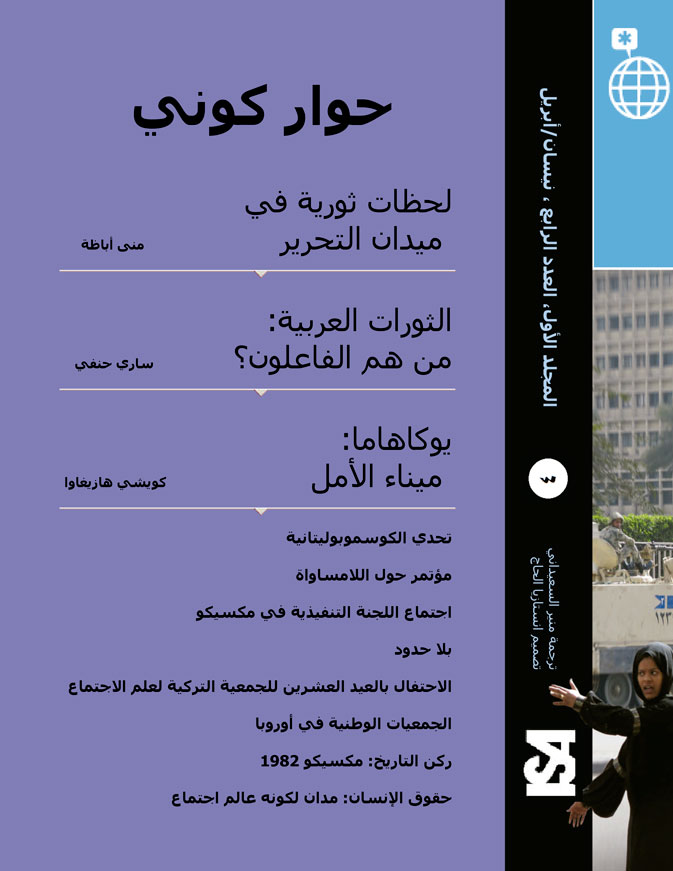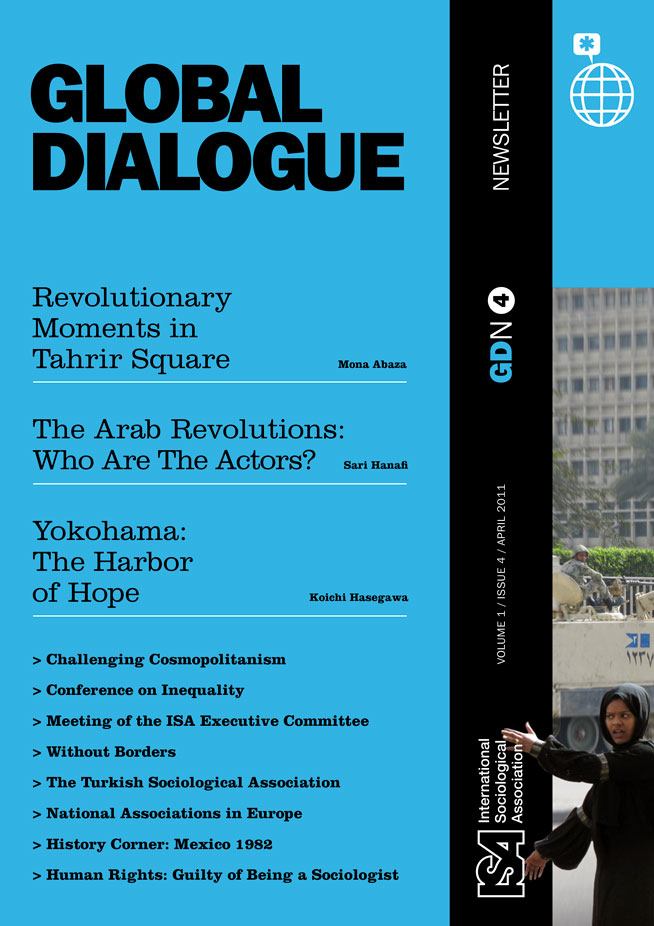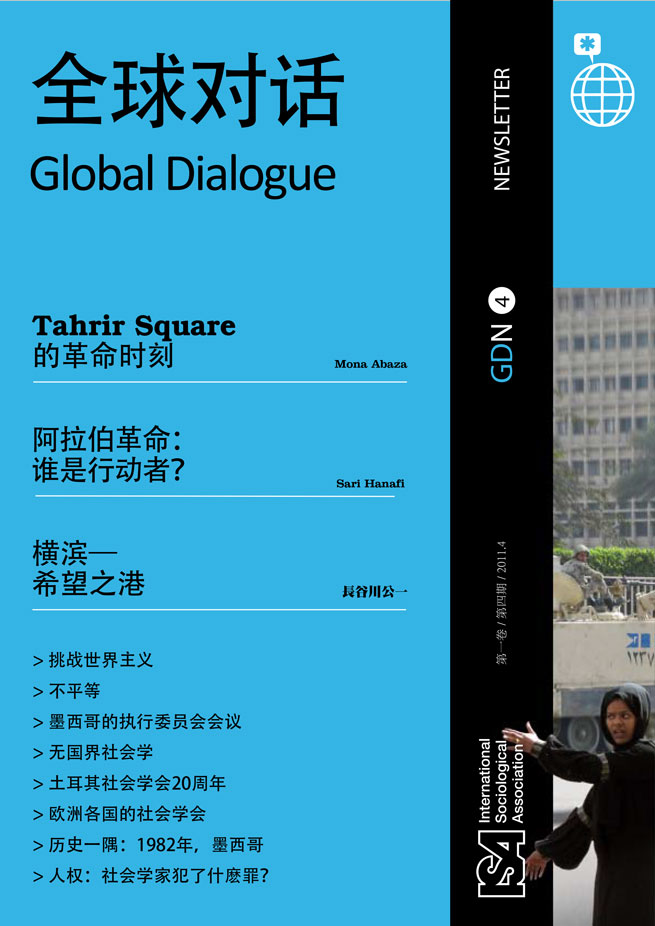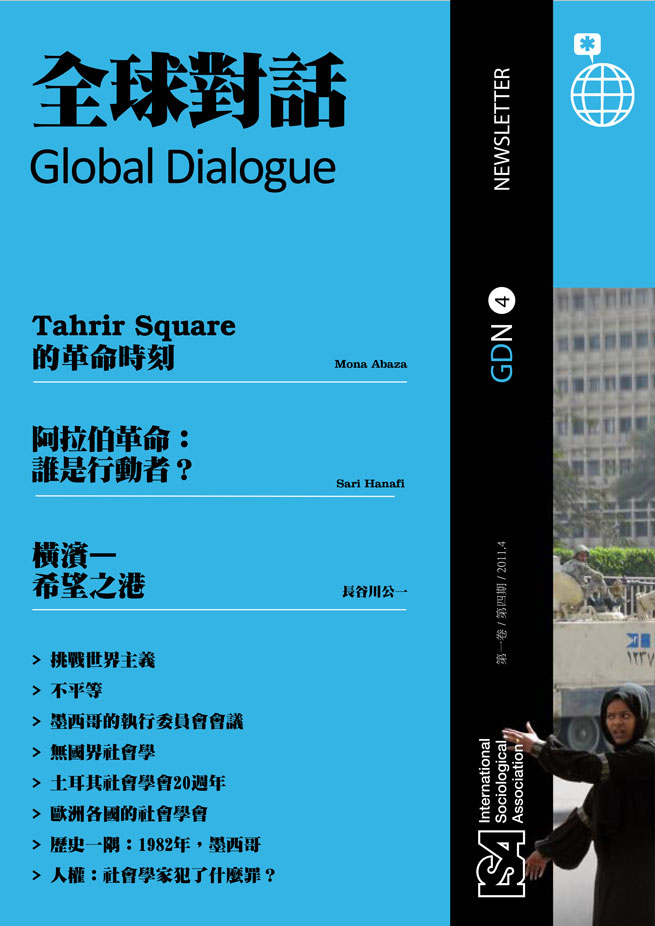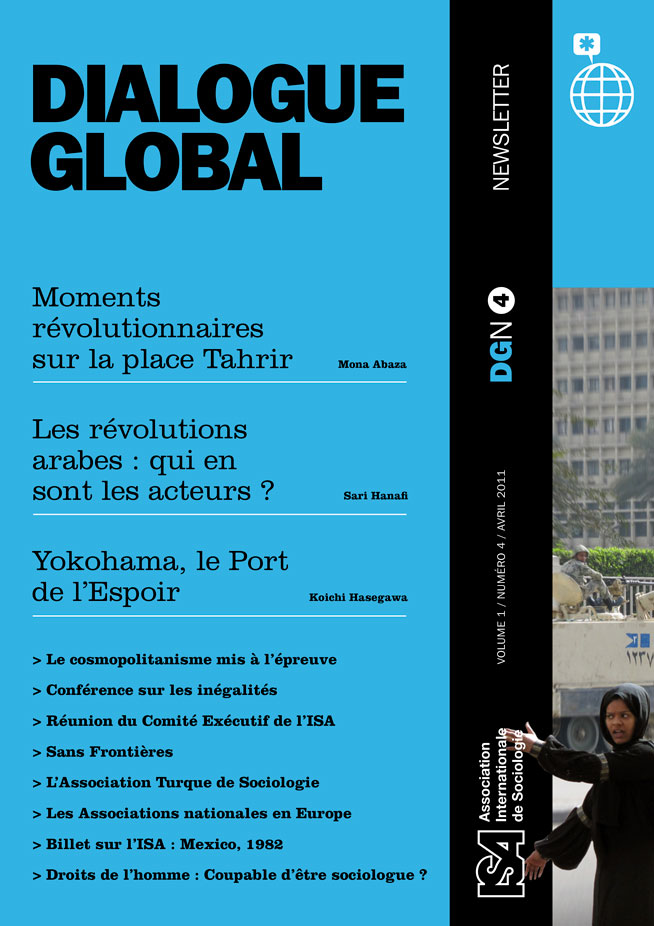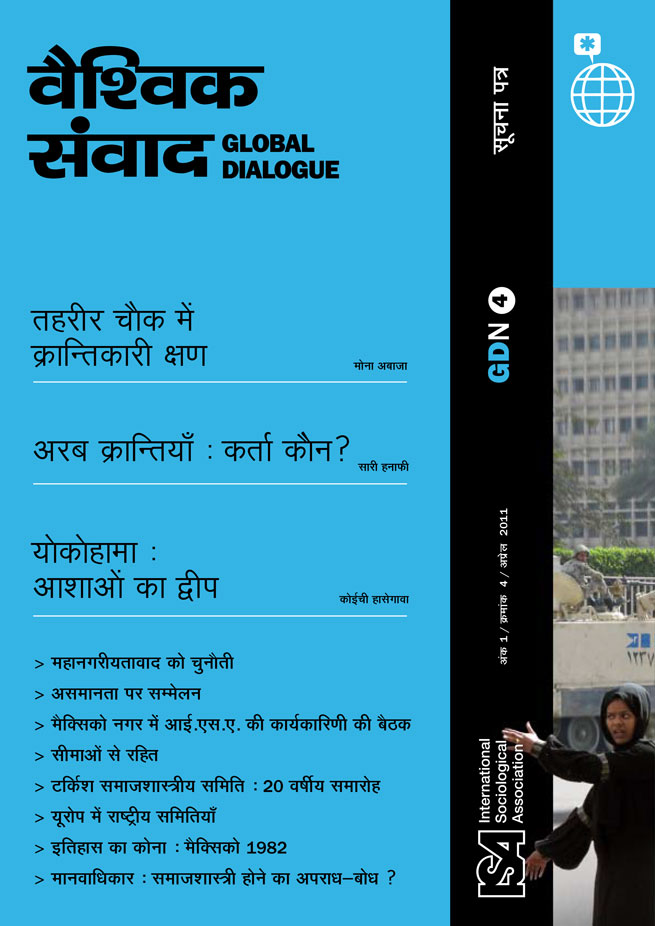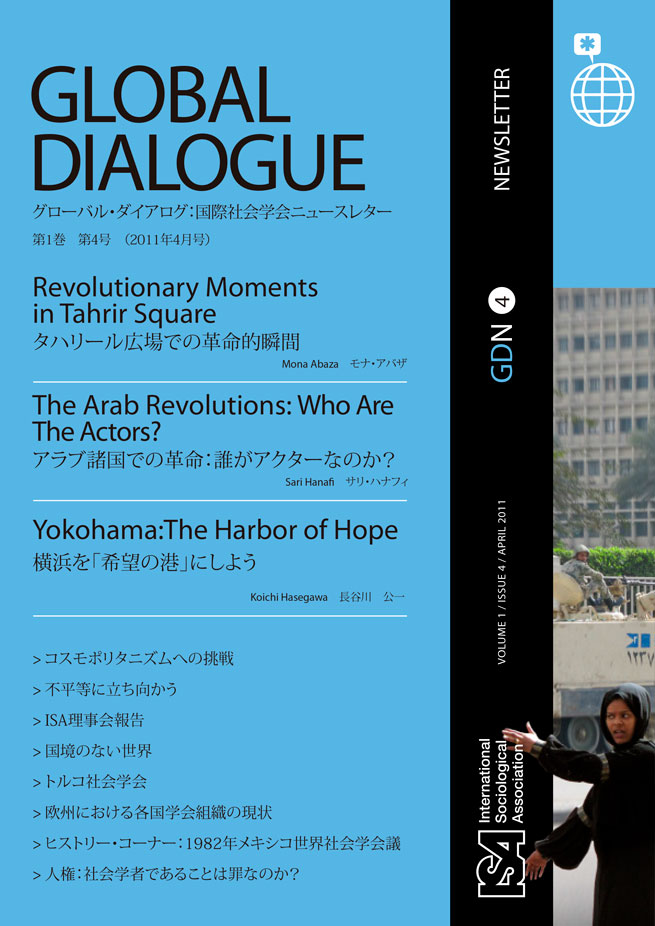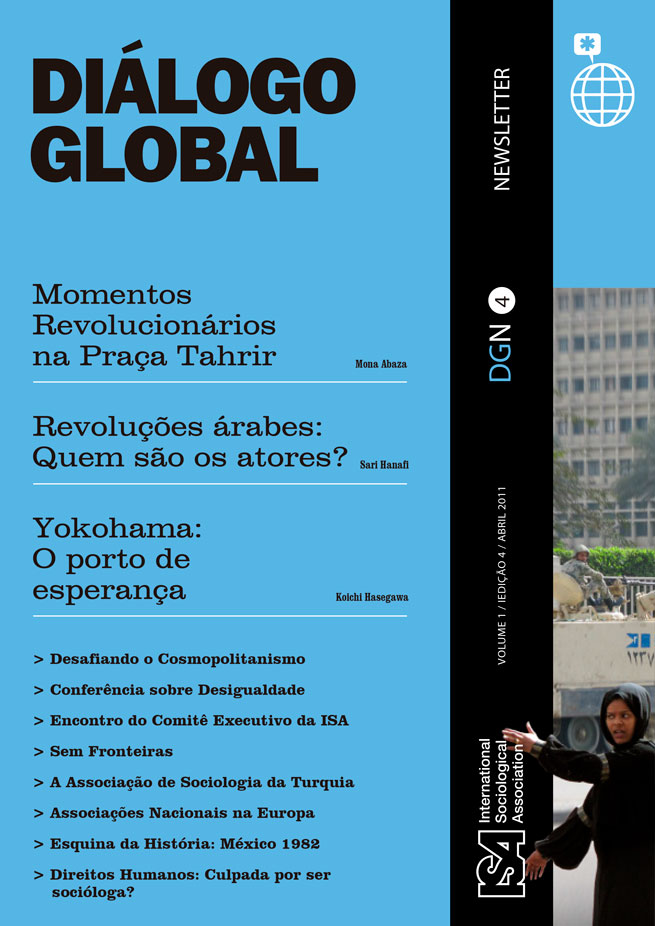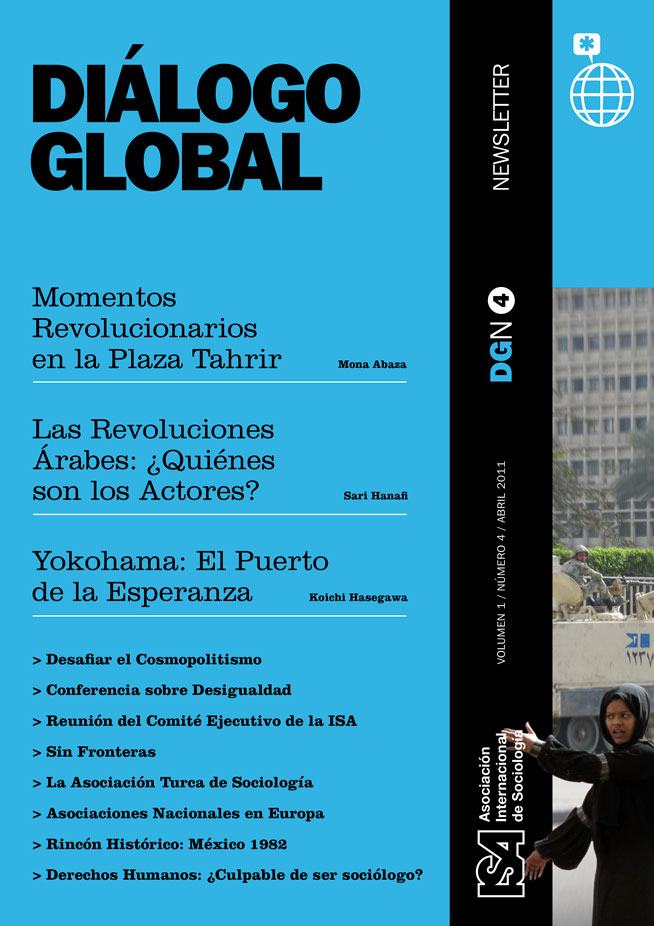Yokohama: The Harbor of Hope
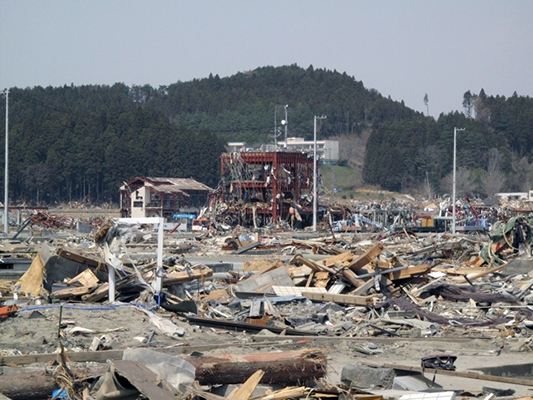
May 07, 2011
Along the beautiful and deeply-indented coast line of North-East Japan, the tsunami destroyed every fi shing port, sweeping away wooden buildings, and leaving just steel structures. This picture of the devastated town of Minami Sanriku shows the frame of its three-story disaster prevention center. From among the more than thirty offi cials working in the building on March 11, only eight including the town mayor were miraculously rescued from the roof top. The others died, including a young woman whose job it was to broadcast evacuation instructions over the community wireless system. Her voice rescued many people, but she was swept away. The newly erected electricity pylons mark the fi ghting spirit of hope and determination to rebuild Japan.
Solidarity with Japanese Sociologists
The ISA Executive Committee would like to express sympathy and solidarity with the victims of the terrible Japanese earthquake and tsunami as well as of the nuclear accident they have precipitated. We know that the Japanese people will continue to confront this unprecedented tragedy with fortitude and a renewed collective spirit. We would like to express our commitment to Japanese sociology in any way feasible, but especially to the success of the ISA World Congress of Sociology in Yokohama in 2014. We know that this event is the culmination of 100 years of Japanese sociology. We doubly appreciate that in this time of great anxiety and distress two members of the Japanese Sociological Society – its President, Professor Shujiro Yawaza, and the head of the Local Organizing Committee for the 2014 Congress, Professor Koichi Hasegawa – managed to attend the meeting of the ISA Executive Committee in Mexico City. Professor Hasegawa presented the following report to the Executive Committee, which we reproduce in full below.
Disastrous earthquakes and tsunami waves hit the Pacific Ocean side of northeast Japan in the afternoon of March 11th. The City of Sendai, where I live, was one of the most severely damaged areas. My family and I were fortunate enough to survive. When the earthquake struck, I just happened to be working on the budget for the ISA World Congress of Sociology. A peaceful Friday afternoon suddenly turned into a disaster. A series of massive and never-experienced tremors attacked me, my family, and the entire area. Almost all my books and folders fell to the floor. And the next moment, I was in the midst of piles of books and papers that rose a meter high. Even now, two weeks later, I still cannot believe what has happened. I feel I’ve been part of a movie, not real life.
Just like San Francisco and Los Angeles, Japan experiences many earthquakes. Japan is located on the boundary of four tectonic plates. Thus, to some extent, earthquakes have always shaped the history of Japanese society, and the Japanese people always expect and are prepared for big quakes. However, no one anticipated the continuous and multiple shocks that rocked northeast Japan – three large scale ones occurred one after another within the first five minutes. This is the reason why the tsunami from the 9.0 quakes grew so unexpectedly fast and that the damages from the waves were beyond our imagination.
Yet, considering the number and size of the earthquakes, the fourth largest in the world, and the high population density of Japanese society, damages ended up relatively small. Communities were well-prepared with quake-resistant buildings. Schools and neighborhoods had routinely conducted emergency drills for earthquakes and tsunami.
I am very proud that so far no riots or plundering have been reported. Even after the worst damage, even in the most severely affected areas, and even in Metropolitan Tokyo, people behaved calmly, joining lines for food, water and delayed transportation. Many foreign reporters were impressed that a sense of order, characteristic of Japanese culture, prevailed even under this catastrophe.
Almost 10 thousand deaths have already been reported, mainly in coastal areas, and over 16 thousand people are still missing after two weeks. These earthquakes and tsunami are the worst natural disaster of modern Japanese history.
To change Japan’s energy policy, did we need another nuclear disaster like in Chernobyl?
Many of us are deeply worried about the nuclear reactors in Fukushima. As an environmental sociologist and a scholar of social movements, I have been totally opposed to Japan’s energy policy of promoting nuclear power. In 1996 I published a critique of that policy in a book titled A Choice for a Post Nuclear Society, which urged the Japanese government to terminate its nuclear power policy. When I was invited to give public lectures, I often raised the following question. “In order to change the Japan’s energy policy, do we need another nuclear disaster like Chernobyl?” It is extremely unfortunate that my warning from 15 years ago had to come true. The Japanese government has missed and neglected several chances to learn lessons from the Three Mile Island disaster, the Chernobyl nuclear disaster and other less well known accidents. I regret to say that I have a sense of powerlessness and emptiness with regard to this issue.
Our venue is safe against earthquakes
I can understand if you all start thinking twice about travelling to Japan for the next ISA World Congress in 2014. But let me tell you – you will want to come and see how revived Japan will be by then. The history of Japanese society is one of overcoming disastrous experiences – the Great Kanto Earthquake of 1923, WWII Air Raids on Tokyo and the atomic bombs dropped on Hiroshima and Nagasaki in 1945, and most recently the Kobe Earthquake of 1995.
The City of Yokohama and the conference venue, PACIFICO Yokohama, did not experience any major damage from the recent earthquakes. After them, the City of Yokohama informed me that buildings are made ready for large scale earthquakes and regularly monitored for safety. Our meeting venue is constructed so as to be completely earthquake-resistant. And a tsunami in Yokohama is unheard of. In its 152 years of history, there has been only one tiny wave recorded and that didn’t cause any damage. The shape of the Yokohama Bay makes it hard for tsunami waves to get into the area. Yokohama and its people are very well prepared for earthquakes.
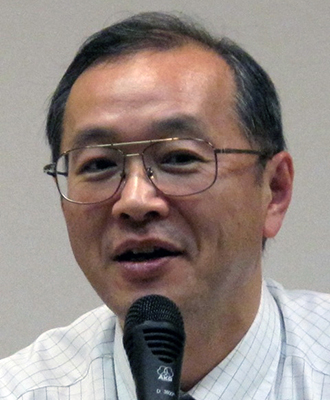
The Japanese LOC will do its best
The Japanese Local Organizing Committee is a broad national team which began its work in June, 2008. The 17 members come from all over Japan and work in diverse areas of research. We are doing our best to build the best organized World Congress of Sociology ever. Collaborating with the Executive Committee of the ISA and the Japan Sociological Society, we are learning from experiences and the lessons of Gothenburg Congress. As regards Pacifico Yokohama, within one site there are two closely located buildings, providing 80 meeting rooms for research committees and other groups. It takes no more than 10 minutes to walk between any two rooms.
The Japanese LOC is preparing five thematic sessions on the following topics:
- Natural and Human disasters, and the recovery of local society
- Low fertility, rapidly aging society, and changing gender relations
- Civil society issues: CSOs, NGOs, social movements
- Compressed modernization and globalization in the East Asian context
- Social research and education in the field of sociology
These topics are very closely relating to the theme of the Congress: Facing an Unequal World: Challenges for a Global Sociology. We are also stressing East Asian perspectives, and we are collaborating with Korean, Chinese and Taiwanese sociologists.
Make Yokohama the Harbor of Hope Pacifico Yokohama is located in the area of Minato-Mirai, called the “Harbor of the Future”, also meaning “Harbor of Hope”. Yokohama has long been the hub of East-West interactions and the center of Northeast and Southeast Asian exchanges – bridging Asia and America, and linking Northern and Southern parts of Asia to the world. It was the Harbor of Hope for the youth leaving Asia for abroad before the time of air travel. Many entered Japan through Yokohama with hope for greater opportunities. Currently Yokohama is one of Japan’s global cities and vividly shows many faces of diversity, displaying fascinating differences and dynamics based on different ethnicities, challenging the stereotypical image of a homogeneous Japanese society.
One of our concerns is the number of registered participants. Our target is to attract more than 5000 delegates as was the case for the Gothenburg Congress. I am afraid that the number of participants might be less because of negative images concerning big earthquakes and a nuclear accident.
But I know you are NOT “armchair sociologists”. You are all brave sociologists facing social reality. Please urge your colleagues, friends and students, to come to Yokohama in three years time, in 2014, to see and experience a renewed and fortified Japanese society. Your commitment to visiting Japan and to participate in the World Congress will be a major boost to Japanese society and Japanese sociology. Please make sure you come to Japan and see the people and its culture with your own eyes, so that you can experience and feel Japan’s recovery. Let us make Yokohama, again, the Harbor of Hope, a place for brave sociologists facing an unequal world and seeking alternatives and sustainable futures. The Yokohama congress is yours. Thank you all for your kind support.
Koichi Hasegawa, Tohoku University, Sendai, Chair of Local Organizing Committee for 2014 World Congress of Sociology, Yokohama

